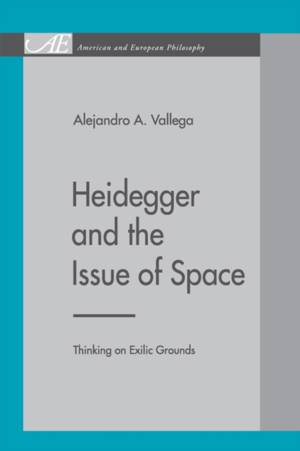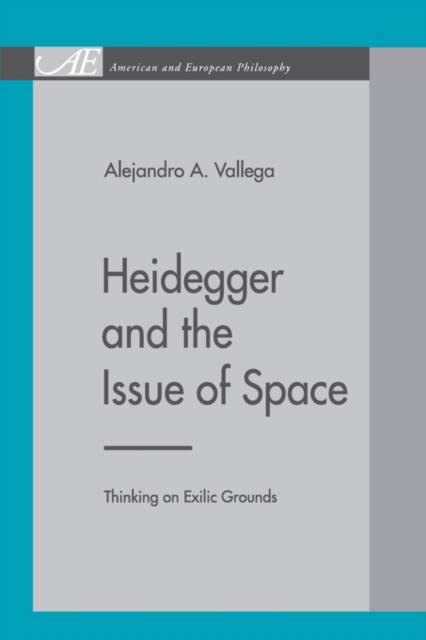
- Afhalen na 1 uur in een winkel met voorraad
- Gratis thuislevering in België vanaf € 30
- Ruim aanbod met 7 miljoen producten
- Afhalen na 1 uur in een winkel met voorraad
- Gratis thuislevering in België vanaf € 30
- Ruim aanbod met 7 miljoen producten
Omschrijving
As the only full-length treatment in English of spatiality in Martin Heidegger's work, this book makes an important contribution to Heidegger studies as well as to research on the history of philosophy. More generally, it advances our understanding of philosophy in terms of its "exilic" character, a sense of alterity that becomes apparent when one fully engages the temporality or finitude essential to conceptual determinations.
By focusing on Heidegger's treatment of the classical difficulty of giving conceptual articulation to spatiality, the author discusses how Heidegger's thought is caught up in and enacts the temporality it uncovers in Being and Time and in his later writings. Ultimately, when understood in this manner, thought is an "exilic" experience--a determination of being that in each case comes to pass in a loss of first principles and origins and, simultaneously, as an opening to conceptual figurations yet to come. The discussion engages such main historical figures as Plato, Aristotle, Descartes, Kant, and indirectly Husserl, as well as contemporary European and American Continental thought.
Specificaties
Betrokkenen
- Auteur(s):
- Uitgeverij:
Inhoud
- Aantal bladzijden:
- 216
- Taal:
- Engels
- Reeks:
Eigenschappen
- Productcode (EAN):
- 9780271028088
- Verschijningsdatum:
- 15/12/2003
- Uitvoering:
- Paperback
- Formaat:
- Trade paperback (VS)
- Afmetingen:
- 152 mm x 229 mm
- Gewicht:
- 322 g

Alleen bij Standaard Boekhandel
Beoordelingen
We publiceren alleen reviews die voldoen aan de voorwaarden voor reviews. Bekijk onze voorwaarden voor reviews.











